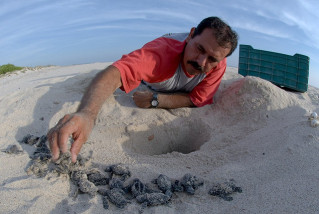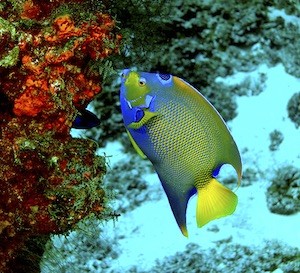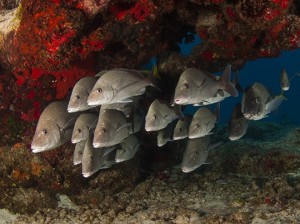Since 1998, AIDA has used the law to protect the environment, primarily in Latin America.
Attorneys from and in Latin America bring regional knowledge and expertise in international law to communities and organizations working to solve environmental problems. With partners throughout the Americas, AIDA advocates and litigates for environmental protection.
The Paul M. Angell Family Foundation is especially interested in AIDA’s marine program. AIDA is working to enforce and reform laws so that coral reefs are legally protected and managed to ensure biological integrity. AIDA also works to establish, strengthen, and enforce legal protections for coastal wetlands, because they support diverse marine life and safeguard our shores. AIDA’s efforts to reform fishery management aim to stop over-fishing and to protect endangered and threatened species. All of these projects help marine ecosystems withstand increasing ocean acidification and support human communities that rely on the sea.
Currently AIDA is working with authorities to strengthen management of Mexico’s Cabo Pulmo reef, to establish a national law for reef protection, and to remediate parts of Veracruz reef that were damaged by development. Sandra Moguel, a Mexican attorney based in Ensenada, leads these efforts. She studied environmental law at the National Autonomous University of Mexico and earned her L.L.M. at the University of Aukland.
Latin Americans created AIDA from a pressing need. By the 1990s, Latin America’s environment had been pushed to the limit. Industrial pollution poisoned air, water, and people. Governments promoted policies that favored industrial development at the expense of human welfare and a healthy environment.
In 1998, environmental groups from Colombia, Costa Rica, Mexico, Peru, and the United States sought ways to coordinate their efforts for regional impact. With the support of concerned donors, they established AIDA as an independent, resource-efficient organization that could enhance their efforts by wielding the power of international law.
AIDA’s work falls into four categories: marine protection, climate change, freshwater protection, and human rights and the environment. In all of this work, AIDA also promotes greater public participation in decisions that affect the environment, and stronger legal means for environmental protection. AIDA’s support of other organizations in the region strengthens their capacity to use the law.




